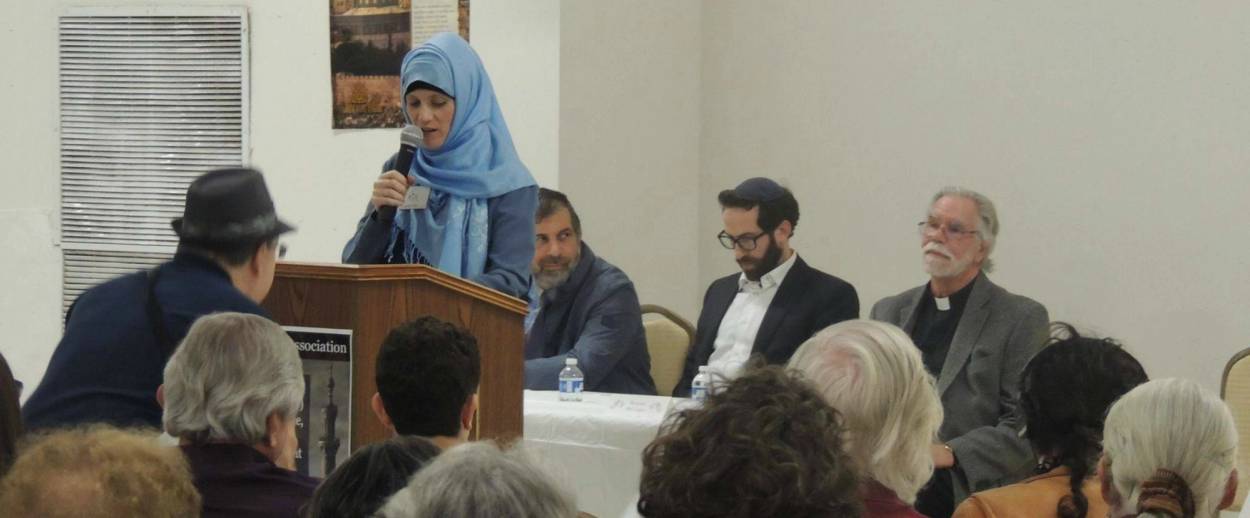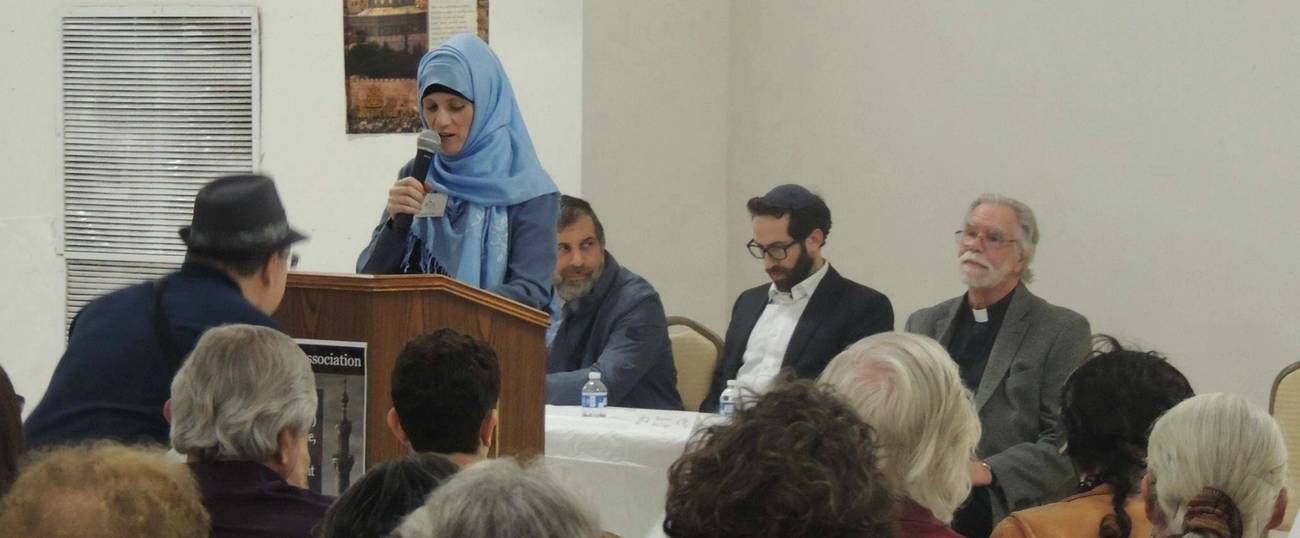In Suburban New Orleans, Local Clergy Urge Interfaith Dialogue Amid Trump’s ‘Broken’ Immigration Order
A Muslim school in Kenner, Louisiana, played host to a night of inspiring discussion among people from numerous religious backgrounds




On Thursday, local leaders and residents gathered at a Muslim school in Kenner, Louisiana, a suburb of New Orleans, to speak out against President Trump’s now suspended immigration ban, which barred nationals from seven Muslim-majority countries in the Middle East and Africa, including Syria, from entering the U.S. “As Muslims we care for this nation and its citizens just as much as anyone else,” said Imam Abdullah Hakim to a room filled with members of the Muslim, Christian, and Jewish communities, and more.
The interfaith event, held in the gym of the gated and police protected Islamic School of Greater New Orleans, was packed with people dressed in everything from hospital scrubs to army uniforms; some women wore kippot, others wore hijabs.
Hakim, who delineated the important difference between loving Muslim devotion and Islamic extremism, implored to everybody present: “Ask your neighbors to come and meet us, come and talk to us,” he said. This, he declared, would erase the space of “othering” and fear of the unknown. “This is the time to build bridges, not to burn them. We will not let any negative rhetoric and hate speech turn us against one another.”
Hakim was followed by a handful of speakers, including two rabbis, two priests, and a Muslim activist. Father “Buddy” Noel, the Ecumenical Officer of the Archdiocese of New Orleans responsible for interfaith outreach, read from the official statement against the administration’s now lifted immigration ban. “Both old and new testaments tell compelling stories of refugees forced to flee because of oppression,” it reads. “We believe the immigration system is broken and has been for a very long time… These actions are the opposite of what it means to be American.”
Noel has been taking classes on Islam for the past year to really learn the faith of his Muslim counterparts and encouraged the crowd to join him in learning more.
Gorgeous gathering 2/9 in New Orleans area of Muslim, Jewish and Christian communities in solidarity against oppression. #interfaithkenner pic.twitter.com/bizVjkdirV
— Barbara Gilbert (@BarbaraGilbert) February 10, 2017
He was followed by Rabbi Alexis Pinsky of Gates of Prayer, a Reform congregation in the neighboring suburb, Metarie, who reminded the crowd of the teachings of Torah: “Do not oppress the stranger for you were strangers,” she said, urging everyone to stand up. “If one group is under attack, we are all under attack.”
Father Ron Unger, a Pastor to the Lutheran Christ the Church and well-known activist for the rights of those living with AIDS in New Orleans, then spoke about the Interfaith Immigration Coalition and their actions locally in Louisiana. “The Faiths of Our Neighbors” is their successful pilot program, where interfaith clergy and congregants visit different houses of worship, a church, a mosque, a synagogue, and learn about one another’s traditions. Father Unger said they began an East Jefferson Interfaith Clergy after an African American family moved to town and the KKK burned their letters on their lawn.
Rabbi Gabe Greenberg of the Modern Orthodox Congregation, Beth Israel, also in Metarie, followed, greeting the crowd with both a “shalom aleichem” and an “asalaam alaikum,” a Muslim greeting that means “peace be with you.”
“Many Jews are under the impression that Islam is a religion of hate and violence,” he began. “I see fear, fear of the unknown, fear of Muslims who they have not met. Fear of the other.” He explained how Torah, like the tenants of Islam, can be used for good, “L’chaim,” or towards life, and can also be used for bad, “L’Moed,” towards illness and death.
Finally, Dr. Mahmoud Sarmini, a staff physician and a member of the West Bank Muslim Association, quoted Rabbi Hillel and urged the crowd to remember, “that which is hateful to you don’t do to your fellow.”
“Doing the right thing is tough,” he said, “But doing the right thing is the greatest thing to do.”
In closing, Hakim along with the event’s host, local activist Jenny Yaned, encouraged the audience to meet a stranger over sweets made by the Muslim Women’s prayer circle, and engage in open conversation. “The only way to resolve what is unsettled in people’s hearts,” Hakim said, “is to ask the questions.”
Related: A Letter From Philadelphia
Merissa Nathan Gerson is a writer, sex educator, and rape prevention advocate. She teaches Alternative Journalism at Tulane University in New Orleans.